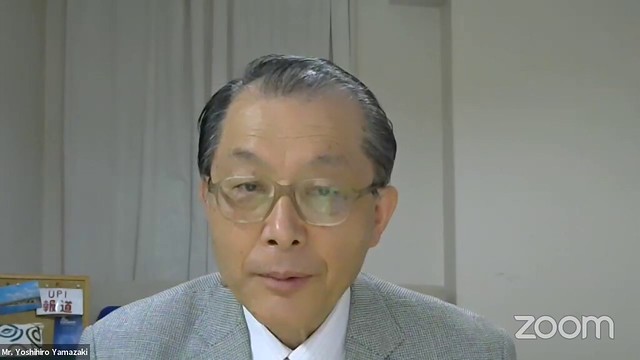Europe and the Middle East—A UPF webinar probed an international highway’s potential to contribute to world peace.
The online conference, held on December 10, 2021, by the Europe and the Middle East branch of UPF’s International Association of Academicians for Peace (IAAP), was titled "International Highway Project with a Vision of Creating a New Civilization."
The International Peace Highway project was advocated as far back as in 1981 by the founders of UPF, the renowned faith leaders Rev. Dr. Sun Myung Moon and Dr. Hak Ja Han Moon, at the 10th International Conference for the Unity of Sciences in Seoul, South Korea.
In the past 40 years, the highway project has been pursued in Japan by the International Highway Foundation (IHF), mainly focusing on its important component of a Japan-Korea Undersea Tunnel. Hirofumi Sato, the foundation's long-time devotee and now its chairman, gave philosophical and civilizational perspectives on the project.
He reminded the mainly European audience of the Roman roads as one of the crucial components of the two centuries of Pax Romana (“Roman Peace”) across the western part of Europe and the Mediterranean Sea. Mr. Sato said that a high-standard worldwide network of road infrastructures, linking virtually all corners of the world as one global village, would become like arteries of humankind forming a global family.
The International Highway Foundation has achieved comprehensive maritime and geological surveys along the possible undersea tunnel routes, Mr. Sato said. An IHF-produced video showed the experimental digging of an inclined shaft of about 500 meters at the city of Karatsu in Japan’s Saga Prefecture.
Mr. Sato explained that South Korea's political and economic interests in the tunnel also have increased, especially after the new mayor of Busan, the southmost city of South Korea—thus a possible linking point of the tunnel—won his recent election with the tunnel construction as one of his election platforms.
In this 40th year since the original proposal for an International Peace Highway, two global transportation infrastructure schemes have been proposed: by the rich and democratic Group of Seven nations (G7) in June called Build Back Better World, as well as by the European Union on December 1, called Global Gateway. Both G7 and EU stated clearly that their plans were counterproposals to China's One Belt One Road Initiative undertaken since 2013 with one trillion dollars earmarked.
The fundamental problem of our society, Mr. Sato claimed, is that "Although communism and capitalism may have reformed social systems, they cannot improve human morality." A new civilizational philosophy needs to be composed not only by economics and politics but also by thoughts and religion, he said. "That philosophy may be summarized in interdependence, mutual prosperity and universal values," he said.
In response to Mr. Sato's hour-long presentation, Heiner W. Handschin, coordinator for Europe and the Middle East of UPF’s Interreligious Association for Peace and Development (IAPD), reiterated the critical importance of a faith-based approach to influence world affairs in the 21st century, "because this way, a more unified and global vision without special interests could be realized," he said, referring to a remark by a famous faith leader, who stated that "to be religious in the 21st century means to be interreligious!”
To see a recording of the webinar, click here.

